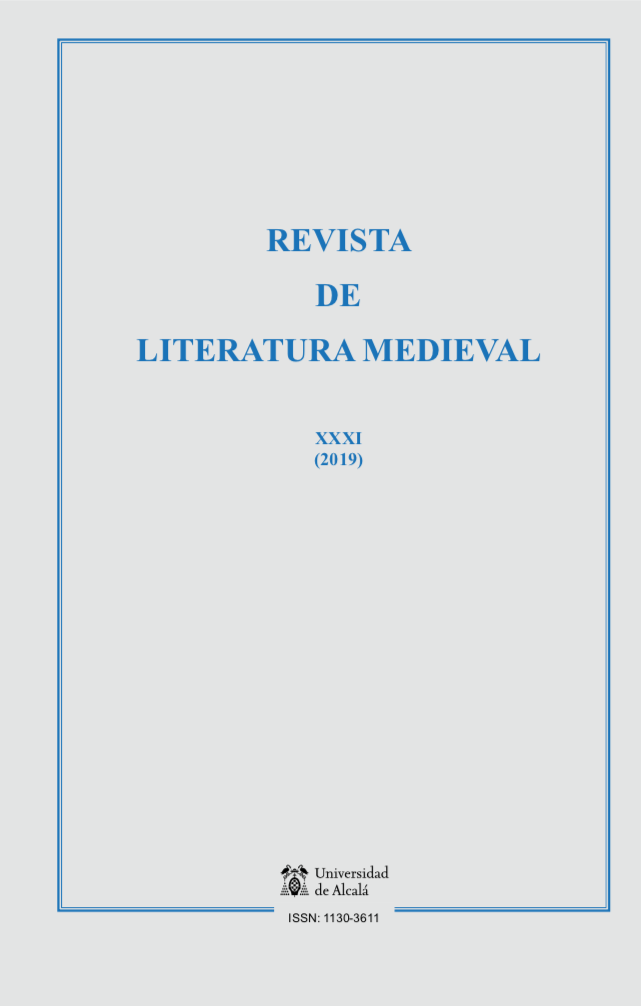The anonyme poem Castrianus (ca. 1440-1470): Study, Latin text snd poetic translation
DOI:
https://doi.org/10.37536/RLM.2019.31.0.72920Keywords:
Table manners, Castrianus, Auctores octo, Facetus: cum nihil utilius, EnglandAbstract
This article contains the first translation into Spanish of an English poem called Castrianus, written around the half of the fifteenth century. The poem had a didactic purpose and expected to teach table manners to young English children who were in boarding schools (lay or monastic). Feasting was a core element to the organisation of social life, either in a familiar or in a public environment. The Castrianus in connected with a tradition of didactic texts aiming to teach manners and moral behaviour that were grouped in a canon of educational works known as Auctores octo. Its most related predecessors are the Libri Catoniani, a supplement that was added to it in the 12th century called Facetus: cum nihil utilius or, more focused in England, Robert de Grosseteste’s Stans puer ad mensan domini. The objective of this contribution is thus to set the cultural context of the Castrianus, to study its metrical form and, lastly, to provide the Latin text and a poetic translation.
Downloads
Métricas alternativas
Downloads
Published
How to Cite
Issue
Section
License
The opinions and facts stated in each article are the exclusive responsability of the authors. The University of Alcalá is not responsible in any case for the credibility and aunthenticity of the studies.
Authors will retain the rights on their work, even if they will be granting the journal a non-exclusive right of use to reproduce, edit, distribute, publicly communicate and show their work. Therefore, authors are free to enter into additional, independent contracts for non-exclusive distribution of the works published in this journal (such as uploading them to an institutional repository or publishing them in a book), as long as the fact that the manuscripts were first published in this journal is acknowledged.
Works are published under the terms stipulated in the Attribution-NonCommercial-ShareAlike 4.0 International License (CC BY-NC-SA 4.0) that allows third parties to share the work under the following conditions:
Attribution — You must give appropriate credit, provide a link to the license, and indicate if changes were made. You may do so in any reasonable manner, but not in any way that suggests the licensor endorses you or your use.
NonCommercial — You may not use the material for commercial purposes.
ShareAlike — If you remix, transform, or build upon the material, you must distribute your contributions under the same license as the original.









